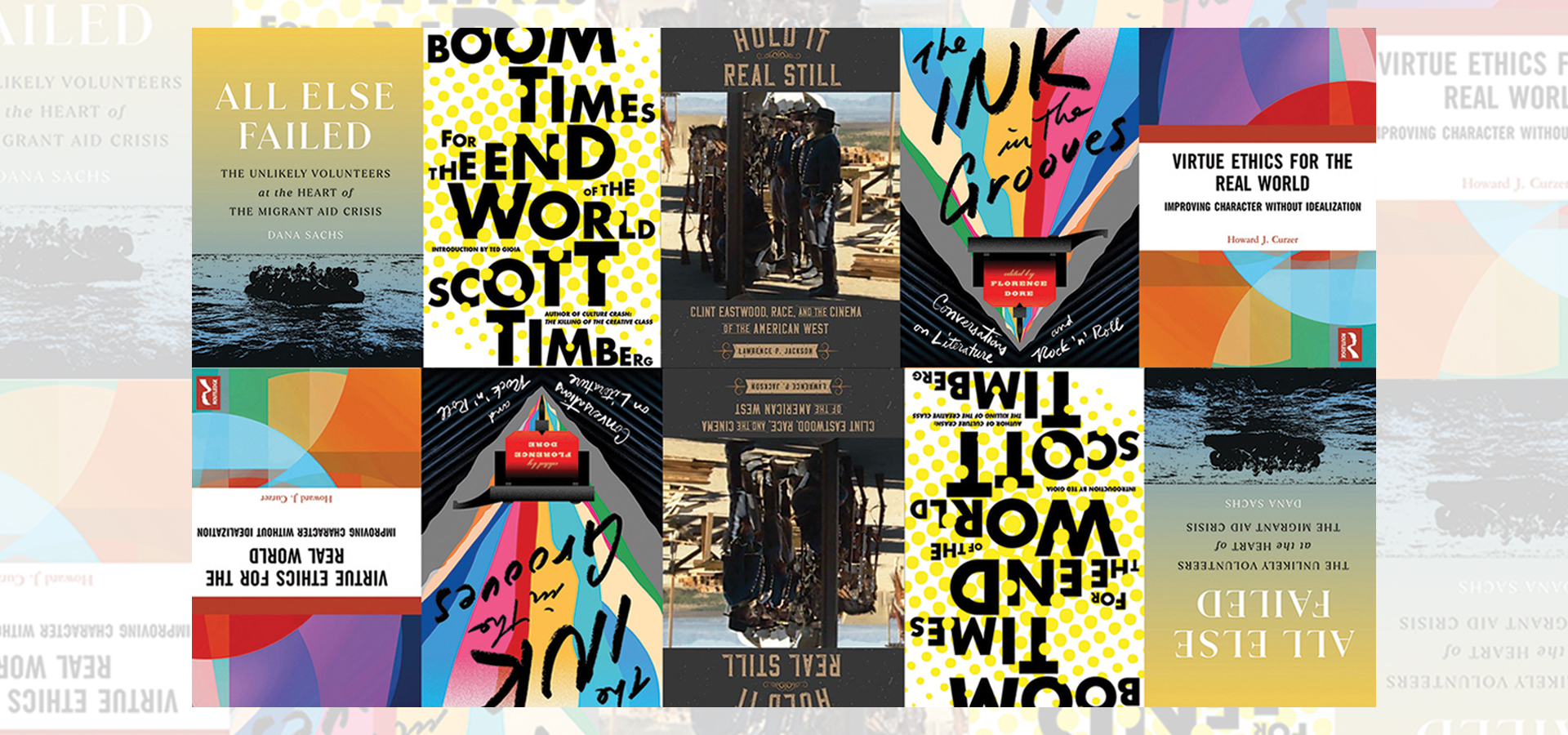Recommended Reading: Books by Rabban ’71, Sinnreich ’94, Kaplan ’86, and Others
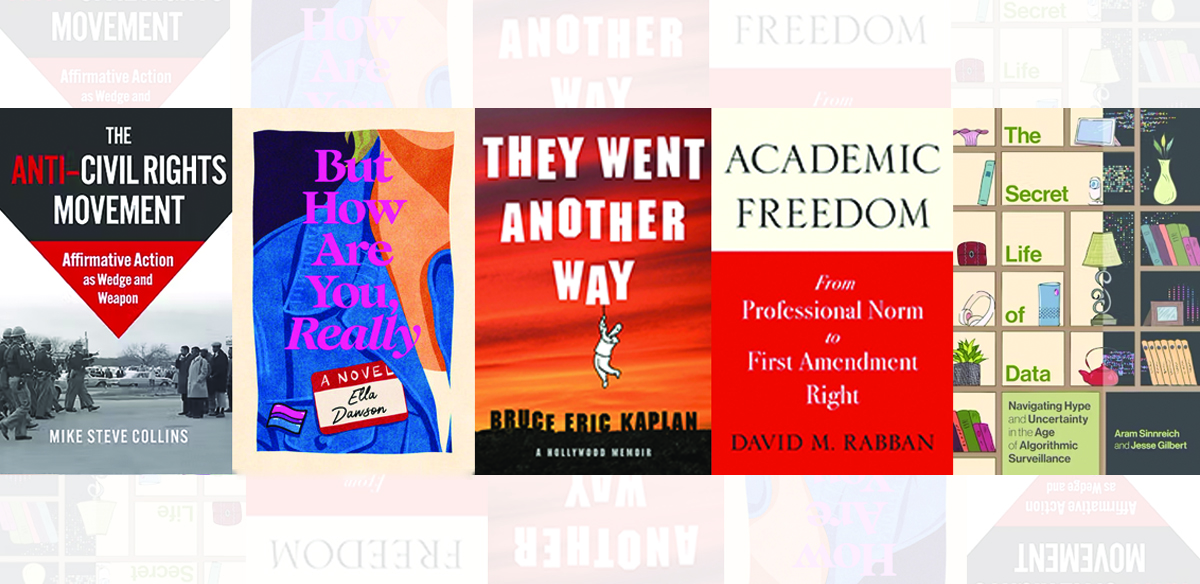
MIKE STEVE COLLINS ’81
The Anti-Civil Rights Movement: Affirmative Action as Wedge and Weapon
 In The Anti-Civil Rights Movement: Affirmative Action as Wedge and Weapon, Texas A&M University Professor Mike Steve Collins ’81 exposes a powerful political force known as the anti-civil rights movement, composed of academics, lawyers, entrepreneurs, politicians, and funders who have banded together for decades to halt the progress of racial justice in the United States. Driven by a wealth of research and knowledge, Collins reveals a troubled history of the expansion and retraction of affirmative action, and the many players behind the scenes who have wielded their influence to achieve outcomes with deep and serious consequences for our country. Topics include racial segregation, critical race theory, and the battle for a more equitable society. Figures such as Edward Blum, Christopher Rufo, Clarence Thomas, and many more are discussed. (University Press of Kansas)
In The Anti-Civil Rights Movement: Affirmative Action as Wedge and Weapon, Texas A&M University Professor Mike Steve Collins ’81 exposes a powerful political force known as the anti-civil rights movement, composed of academics, lawyers, entrepreneurs, politicians, and funders who have banded together for decades to halt the progress of racial justice in the United States. Driven by a wealth of research and knowledge, Collins reveals a troubled history of the expansion and retraction of affirmative action, and the many players behind the scenes who have wielded their influence to achieve outcomes with deep and serious consequences for our country. Topics include racial segregation, critical race theory, and the battle for a more equitable society. Figures such as Edward Blum, Christopher Rufo, Clarence Thomas, and many more are discussed. (University Press of Kansas)
Ella Dawson ’14
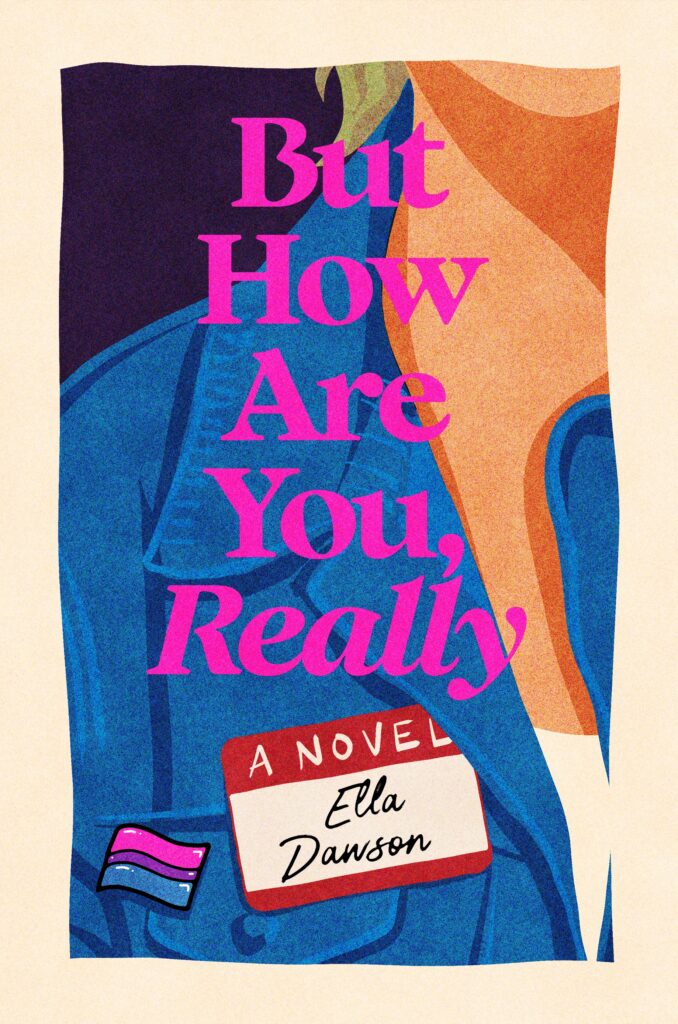 Charlotte Thorne, feeling disillusioned and sucker-punched by post-grad life, has no interest in attending her university’s five-year reunion. Hein University was once a site of hope—disco parties, shared twin XL beds, and Reece Kreuger, the hot hockey player she ghosted after a brief but meaningful fling. However, when Charlotte’s boss is selected to give the commencement speech, she’s forced to return, and she’s determined to make the most of it. As she navigates the event, Charlotte is confronted by the success of her peers and the overwhelming sense of being lost and left behind. Yet, at its core, But How Are You, Really is a story about second chances at love and the slow and sloppy (but then all-at-once) growth you experience in your 20s, made possible by supportive friends. With wit and heart, Ella Dawson transports readers back to their chaotic college years, leaving them aching with laughter and grief for their past selves. (Dutton)
Charlotte Thorne, feeling disillusioned and sucker-punched by post-grad life, has no interest in attending her university’s five-year reunion. Hein University was once a site of hope—disco parties, shared twin XL beds, and Reece Kreuger, the hot hockey player she ghosted after a brief but meaningful fling. However, when Charlotte’s boss is selected to give the commencement speech, she’s forced to return, and she’s determined to make the most of it. As she navigates the event, Charlotte is confronted by the success of her peers and the overwhelming sense of being lost and left behind. Yet, at its core, But How Are You, Really is a story about second chances at love and the slow and sloppy (but then all-at-once) growth you experience in your 20s, made possible by supportive friends. With wit and heart, Ella Dawson transports readers back to their chaotic college years, leaving them aching with laughter and grief for their past selves. (Dutton)
Bruce Eric Kaplan ’86
They Went Another Way: A Hollywood Memoir
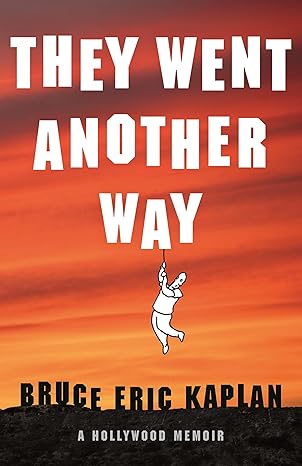 Not one, but two. There are two dead birds in Bruce Eric Kaplan’s driveway. As the Los Angeles-based television writer and cartoonist ruminates on the dystopian succession of events in early 2020s America, he can’t help but view the unusual succession of deceased birds in his territory as apocalyptic and somehow connected. This memoir in an easy-to-read journal format instantly draws you into Kaplan’s world, where Hollywood meetings exist alongside everyday chores such as cleaning his daughter’s room. Traces of David Sedaris’s sharp humor and meticulousness carry throughout, with a compelling interplay between amusing descriptions of ordinary domestic life and edges of heaviness that touch on the tender ephemerality of being alive. In a Zoom with a prominent actor as they discuss his television project, he says, “This show is hopefully about finding truth and beauty and joy in the world despite all signs of it not being there.” They Went Another Way: A Hollywood Memoir expresses this dichotomy while making readers chuckle, and what a joyful experience that is. (Henry Holt and Company)
Not one, but two. There are two dead birds in Bruce Eric Kaplan’s driveway. As the Los Angeles-based television writer and cartoonist ruminates on the dystopian succession of events in early 2020s America, he can’t help but view the unusual succession of deceased birds in his territory as apocalyptic and somehow connected. This memoir in an easy-to-read journal format instantly draws you into Kaplan’s world, where Hollywood meetings exist alongside everyday chores such as cleaning his daughter’s room. Traces of David Sedaris’s sharp humor and meticulousness carry throughout, with a compelling interplay between amusing descriptions of ordinary domestic life and edges of heaviness that touch on the tender ephemerality of being alive. In a Zoom with a prominent actor as they discuss his television project, he says, “This show is hopefully about finding truth and beauty and joy in the world despite all signs of it not being there.” They Went Another Way: A Hollywood Memoir expresses this dichotomy while making readers chuckle, and what a joyful experience that is. (Henry Holt and Company)
David M. Rabban ’71
Academic Freedom: From Professional Norm to First Amendment Right
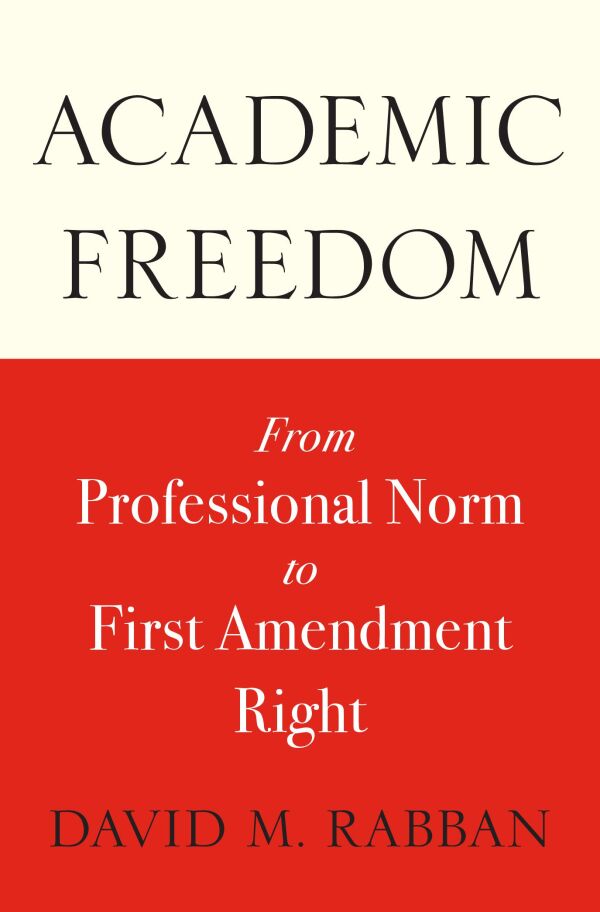 The constitutions of many countries refer specifically to academic freedom as a protected right, but did you know that the United States is not one of them? University of Texas School of Law Professor David M. Rabban ’71 focuses Academic Freedom: From Professional Norm to First Amendment Right on this disparity and proposes a theory of academic freedom as a distinctive subset of First Amendment law. It was not until 1957 that the Supreme Court for the first time identified academic freedom as a constitutional right, differentiating it from political expression. This thought-provoking book describes many controversial issues concerning free speech and academia, and the profound contributions to society made by American professors and their institutions. Through his examination of case law, Rabban posits that the advancement of academic knowledge aligns with First Amendment values as recognized by the courts, at a time when freedom of speech is threatened in many manifestations. (Harvard University Press)
The constitutions of many countries refer specifically to academic freedom as a protected right, but did you know that the United States is not one of them? University of Texas School of Law Professor David M. Rabban ’71 focuses Academic Freedom: From Professional Norm to First Amendment Right on this disparity and proposes a theory of academic freedom as a distinctive subset of First Amendment law. It was not until 1957 that the Supreme Court for the first time identified academic freedom as a constitutional right, differentiating it from political expression. This thought-provoking book describes many controversial issues concerning free speech and academia, and the profound contributions to society made by American professors and their institutions. Through his examination of case law, Rabban posits that the advancement of academic knowledge aligns with First Amendment values as recognized by the courts, at a time when freedom of speech is threatened in many manifestations. (Harvard University Press)
Aram Sinnreich ’94 and jesse gilbert
The Secret Life of Data: Navigating Hype and Uncertainty in the Age of Algorithmic Surveillance
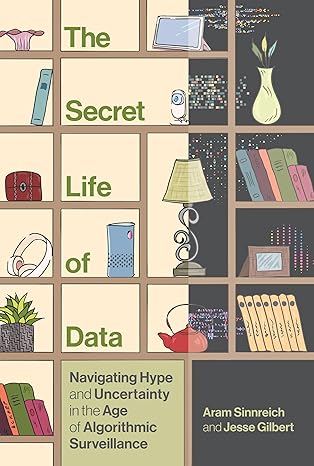 Human life has changed dramatically since the dawn of the digital age, and anyone alive today can attest to the ways in which our digitized, globalized society has affected us. Concerns over the data that our digital interactions leave behind and their implications on our privacy are nothing new. For every benefit that our devices and networks offer us, there seems to be a drawback, legally and ethically. Aram Sinnreich ’94 and Jesse Gilbert explore this tension in The Secret Life of Data: Navigating Hype and Uncertainty in the Age of Algorithmic Surveillance. The book presents a fresh, long-view counterpoint to much of the literature on this subject available today, detailing how our data takes on a secret life, one in which the artifacts that we produce and the traces they leave may be recorded, archived, and analyzed in perpetuity without our awareness, by organizations we’ve never heard of, using tools and techniques that may not even exist yet. Interviews with a variety of experts along with proposals for constructive solutions broaden the scope of the book. (The MIT Press)
Human life has changed dramatically since the dawn of the digital age, and anyone alive today can attest to the ways in which our digitized, globalized society has affected us. Concerns over the data that our digital interactions leave behind and their implications on our privacy are nothing new. For every benefit that our devices and networks offer us, there seems to be a drawback, legally and ethically. Aram Sinnreich ’94 and Jesse Gilbert explore this tension in The Secret Life of Data: Navigating Hype and Uncertainty in the Age of Algorithmic Surveillance. The book presents a fresh, long-view counterpoint to much of the literature on this subject available today, detailing how our data takes on a secret life, one in which the artifacts that we produce and the traces they leave may be recorded, archived, and analyzed in perpetuity without our awareness, by organizations we’ve never heard of, using tools and techniques that may not even exist yet. Interviews with a variety of experts along with proposals for constructive solutions broaden the scope of the book. (The MIT Press)

